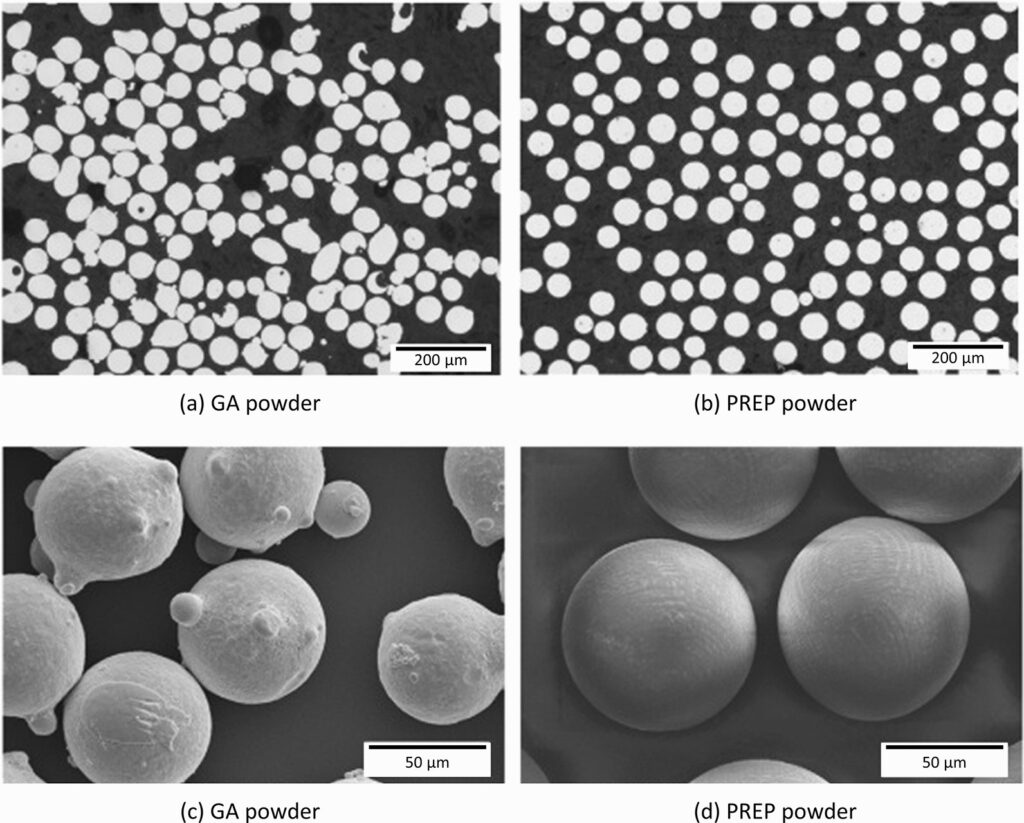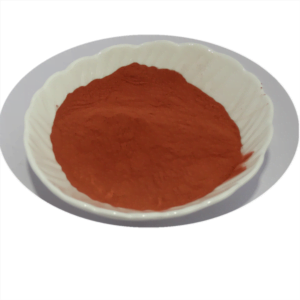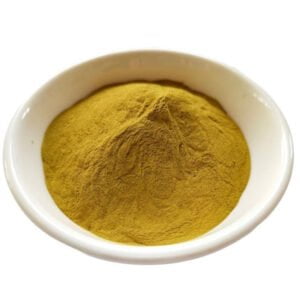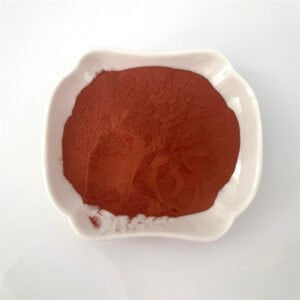
431 Powder: A Comprehensive Guide
Low MOQ
Provide low minimum order quantity to meet different needs.
OEM & ODM
Provide customized products and design services to meet unique customer needs.
Adequate Stock
Ensure fast order processing and provide reliable and efficient service.
Customer Satisfaction
Provide high quality products with customer satisfaction at the core.
share this article
Table of Contents
When we dive into the world of materials, especially specialized powders like 431 Powder, we’re talking about a game-changer that serves across industries like aerospace, automotive, and even medical fields. But what exactly is 431 Powder, and why does it stand out? Let’s break it down, piece by piece, so that by the end of this article you’ll know not only what 431 Powder is but how it could be the material solution you didn’t know you needed.
Overview
To start, 431 Powder is a type of martensitic stainless steel powder primarily used for its high strength and moderate corrosion resistance. It’s part of the 400 series of stainless steel, known for its ability to be heat-treated and hardened, making it ideal for demanding industrial applications. The powder form is especially useful in additive manufacturing (3D printing), metal injection molding, and other powder metallurgy processes.
What makes this powder unique is its balance between hardness, toughness, and corrosion resistance, which are attributes highly sought after in industries where mechanical stress and environmental exposure are common.
Why Is 431 Powder So Popular?
Imagine you’re building an engine for a high-performance car. You need parts that can withstand heat, stress, and exposure to corrosive elements. That’s where 431 Powder comes in. It’s like the unsung hero in the background, providing the durability and resilience needed to make sure everything runs smoothly under extreme conditions.
Composition and Properties
The composition of any material is like its DNA—it tells you what makes a material strong, weak, flexible, or brittle. In the case of 431 Powder, its composition is finely tuned to balance strength and corrosion resistance.
Key Components
| Element | Percentage (%) |
|---|---|
| Iron (Fe) | Balance |
| Chromium (Cr) | 15.0 – 17.0 |
| Nickel (Ni) | 1.25 – 2.50 |
| Manganese (Mn) | 1.00 max |
| Silicon (Si) | 1.00 max |
| Carbon (C) | 0.12 – 0.20 |
| Phosphorus (P) | 0.040 max |
| Sulfur (S) | 0.030 max |
Mechanical Properties
| Property | Value |
|---|---|
| Tensile Strength | 850 – 1000 MPa |
| Yield Strength | 600 – 700 MPa |
| Elongation (in 50mm) | 12 – 15% |
| Hardness (Brinell) | 260 – 300 HB |
| Modulus of Elasticity | 200 GPa |
| Density | 7.7 g/cm³ |
| Thermal Conductivity | 25 W/mK |
| Coefficient of Expansion | 10.1 x 10⁻⁶ /°C |
Applications
Now that you know what’s inside 431 Powder, you might be wondering, “Where is this stuff actually used?” Its applications are diverse and spread across several high-performance industries. Given its strength and corrosion resistance, 431 Powder is a go-to for parts that face heavy wear and tear but also need to resist rust or oxidation.
Common Applications
| Industry | Application |
|---|---|
| Aerospace | Turbine blades, fasteners, and landing gear |
| Automotive | Engine components, gears, and shafts |
| Medical | Surgical instruments, orthopedic implants |
| Oil & Gas | Valves, pumps, and drilling equipment |
| Marine | Propeller shafts, rudder stocks |
| Defense | Armor plating, projectile casings |
| Additive Manufacturing | 3D printed components for high-stress parts |
Why 431 Powder Suits These Applications
Think about the industries listed above. What do they have in common? Stress, temperature extremes, and exposure to harsh environments. In aerospace, for example, turbine blades must endure high temperatures and rotational stress. In the medical field, surgical tools need to be not only durable but also corrosion-resistant to avoid contamination.
Specifications, Sizes, and Standards
When it comes to industry use, specific sizes and standards must be met to ensure the powder works effectively for various applications. 431 Powder is typically classified and supplied according to several international standards, ensuring consistency and performance across industries.
Specifications and Sizes
| Specification | Details |
|---|---|
| Particle Size | 15 to 45 μm (microns) |
| Powder Flowability | 20 – 30 sec/50g (ASTM B213) |
| Apparent Density | 4.5 g/cm³ |
| Tap Density | 5.0 g/cm³ |
| Standards | ASTM A276, ASTM A693, AMS 5628 |
| Packaging Sizes | 1 kg, 5 kg, 25 kg |
| Form | Spherical powder |
Suppliers and Pricing
The price of 431 Powder can vary depending on the supplier, quantity, and current market conditions. Typically, prices are driven by factors like raw material costs, demand, and any additional processing (such as particle size distribution control) that the powder undergoes.
Suppliers and Pricing Details
| Supplier | Location | Price Range (per kg) | Delivery Time |
|---|---|---|---|
| PowderTech Solutions | USA | $50 – $70 | 1-2 weeks |
| Metal Additive Co. | Germany | $60 – $80 | 2-3 weeks |
| Global Metals Ltd. | China | $45 – $65 | 3-4 weeks |
| Precision Powders | UK | $55 – $75 | 2 weeks |
Factors Affecting Pricing
- Quantity: The larger the order, the better the price per kilogram.
- Location: Domestic suppliers may offer faster shipping but could come at a premium.
- Customization: If you need a specific particle size or other custom features, expect the price to go up.
Pros and Cons
No material is perfect, and 431 Powder is no exception. While it offers numerous advantages, it also has its limitations. Let’s look at the good, the bad, and the ugly.
Advantages and Limitations
| Advantages | Limitations |
|---|---|
| High tensile strength | Not as corrosion-resistant as 300-series SS |
| Moderate corrosion resistance | Requires heat treatment for maximum hardness |
| Good wear resistance | Higher cost compared to other steels |
| Excellent for high-stress applications | Limited weldability |
| Can be hardened through heat treatment | Brittle under certain conditions |
Key Takeaway
If your application demands strength and moderate corrosion resistance, 431 Powder is a solid choice. However, if you’re working in environments where corrosion is the primary concern, you might want to look at other options like the 300-series stainless steels.
FAQs
What is 431 Powder used for?
431 Powder is used in high-stress applications such as aerospace parts, automotive components, and medical devices. Its ability to endure mechanical stress and moderate corrosion makes it a versatile material.
How is 431 Powder different from other stainless steel powders?
Compared to 300-series stainless steel powders, 431 Powder offers higher strength but lower corrosion resistance. It’s particularly suited for applications requiring mechanical strength rather than extreme corrosion resistance.
Can 431 Powder be used in 3D printing?
Yes! 431 Powder is commonly used in additive manufacturing for producing parts that need to handle high stress and wear, such as gears and aerospace components.
How much does 431 Powder cost?
On average, 431 Powder costs between $45 to $80 per kilogram, depending on the supplier and any custom specifications required.
Is 431 Powder easy to machine?
Once heat-treated, 431 Powder can be somewhat difficult to machine due to its hardness. However, it can be machined effectively in its annealed state.
Conclusion
Whether you’re in aerospace, automotive, or any other high-performance industry, 431 Powder offers a robust, versatile solution. Its balance of strength and corrosion resistance makes it a top choice for applications where mechanical stress is a concern. While it might not be as corrosion-resistant as some other stainless steels, its ability to withstand wear and tear makes it invaluable for many different industries.
By understanding the nuances of 431 Powder—from its composition and properties to its applications and pricing—you’re better equipped to make informed decisions for your projects. Whether you’re looking to improve durability, reduce wear, or simply find a material that will stand the test of time, 431 Powder might just be the answer you’re looking for.
Get Latest Price
About Met3DP
Product Category
HOT SALE
CONTACT US
Any questions? Send us message now! We’ll serve your request with a whole team after receiving your message.

Metal Powders for 3D Printing and Additive Manufacturing
COMPANY
PRODUCT
cONTACT INFO
- Qingdao City, Shandong, China
- [email protected]
- [email protected]
- +86 19116340731















